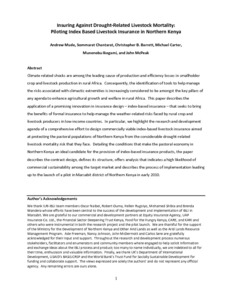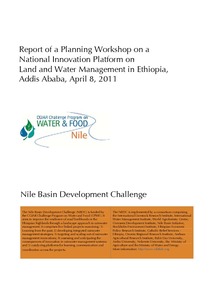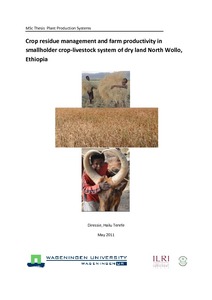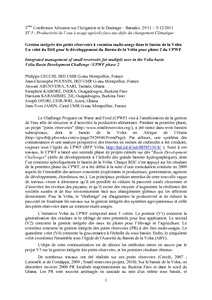CGIAR is the only worldwide partnership addressing agricultural research for development, whose work contributes to the global effort to tackle poverty, hunger and major nutrition imbalances, and environmental degradation.
It is carried out by 15 Centers, that are members of the CGIAR Consortium, in close collaboration with hundreds of partners, including national and regional research institutes, civil society organizations, academia, development organizations and the private sector.
The 15 Research Centers generate and disseminate knowledge, technologies, and policies for agricultural development through the CGIAR Research Programs. The CGIAR Fund provides reliable and predictable multi-year funding to enable research planning over the long term, resource allocation based on agreed priorities, and the timely and predictable disbursement of funds. The multi-donor trust fund finances research carried out by the Centers through the CGIAR Research Programs.
We have almost 10,000 scientists and staff in 96 countries, unparalleled research infrastructure and dynamic networks across the globe. Our collections of genetic resources are the most comprehensive in the world.
What we do
We collaborate with research and development partners to solve development problems. To fulfill our mission we:
- Identify significant global development problems that science can help solve
- Collect and organize knowledge related to these development problems
- Develop research programs to fill the knowledge gaps to solve these development problems
- Catalyze and lead putting research into practice, and policies and institutions into place, to solve these development problems
- Lead monitoring and evaluation, share the lessons we learn and best practices we discover;
- Conserve, evaluate and share genetic diversity
- Strengthen skills and knowledge in agricultural research for development around the world
Making a difference
We act in the interests of the world’s poorest and most vulnerable. Our track record spans four decades of research.
Our research accounted for US$673 million or just over 10 percent of the US$5.1 billion spent on agricultural research for development in 2010. The economic benefits run to billions of dollars. In Asia, the overall benefits of CGIAR research are estimated at US$10.8 billion a year for rice, US$2.5 billion for wheat and US$0.8 billion for maize.
It has often been cited that one dollar invested in CGIAR research results in about nine dollars in increased productivity in developing countries.
Sweeping reforms for the 21st century
Political, financial, technological and environmental changes reverberating around the globe mean that there are many opportunities to rejuvenate the shaky global food system. Developments in agricultural and environmental science, progress in government policies, and advances in our understanding of gender dynamics and nutrition open new avenues for producing more food and for making entrenched hunger and poverty history.
The sweeping reforms that brought in the CGIAR Consortium in 2010 mean we are primed to take advantage of these opportunities. We are eagerly tackling the ever more complex challenges in agricultural development. We are convinced that the science we do can make even more of a difference. To fulfill our goals we aim to secure US$1 billion in annual investments to fund the current CGIAR Research Programs.
CGIAR has embraced a new approach that brings together its strengths around the world and spurs new thinking about agricultural research for development, including innovative ways to pursue scientific work and the funding it requires. CGIAR is bringing donors together for better results and enabling scientists to focus more on the research through which they develop and deliver big ideas for big impact. As a result, CGIAR is more efficient and effective, and better positioned than ever before to meet the development challenges of the 21st century.
We are no longer the ‘Consultative Group on International Agricultural Research’. In 2008 we underwent a major transformation, to reflect this and yet retain our roots we are now known simply as CGIAR.
Members:
Resources
Displaying 8826 - 8830 of 12598Insuring against drought?related livestock mortality: Piloting index based livestock insurance in northern Kenya
Climate related shocks are among the leading cause of production and efficiency losses in smallholder crop and livestock production in rural Africa. Consequently, the identification of tools to help manage the risks associated with climactic extremities is increasingly considered to be amongst the key pillars of any agenda to enhance agricultural growth and welfare in rural Africa.
Insuring against drought?related livestock mortality: Piloting index based livestock insurance in northern Kenya
Climate related shocks are among the leading cause of production and efficiency losses in smallholder crop and livestock production in rural Africa. Consequently, the identification of tools to help manage the risks associated with climactic extremities is increasingly considered to be amongst the key pillars of any agenda to enhance agricultural growth and welfare in rural Africa.
Report of a Planning Workshop on a National Innovation Platform on Land and Water Management in Ethiopia, Addis Ababa, Ethiopia, April 8, 2011
Crop residue management and farm productivity in smallholder crop-livestock system of dry land North Wollo, Ethiopia
Gestion inte?gre?e des petits re?servoirs a? vocation multi-usage dans le bassin de la Volta Un volet du De?fi pour le de?veloppement du Bassin de la Volta pour phase 2 du CPWF
Le Challenge Program on Water and Food (CPWF) vise a? l’ame?lioration de la gestion de l'eau afin de se?curiser et d’accroi?tre la production alimentaire. Pendant sa premie?re phase, un projet "petits re?servoirs" (http://www.smallreservoirs.org/), a e?te? mene? dans trois bassins subtropicaux, dont le bassin de la Volta en Afrique de l’Ouest (http://cpwfbfp.pbworks.com/w/page/5926948/FrontPage).





